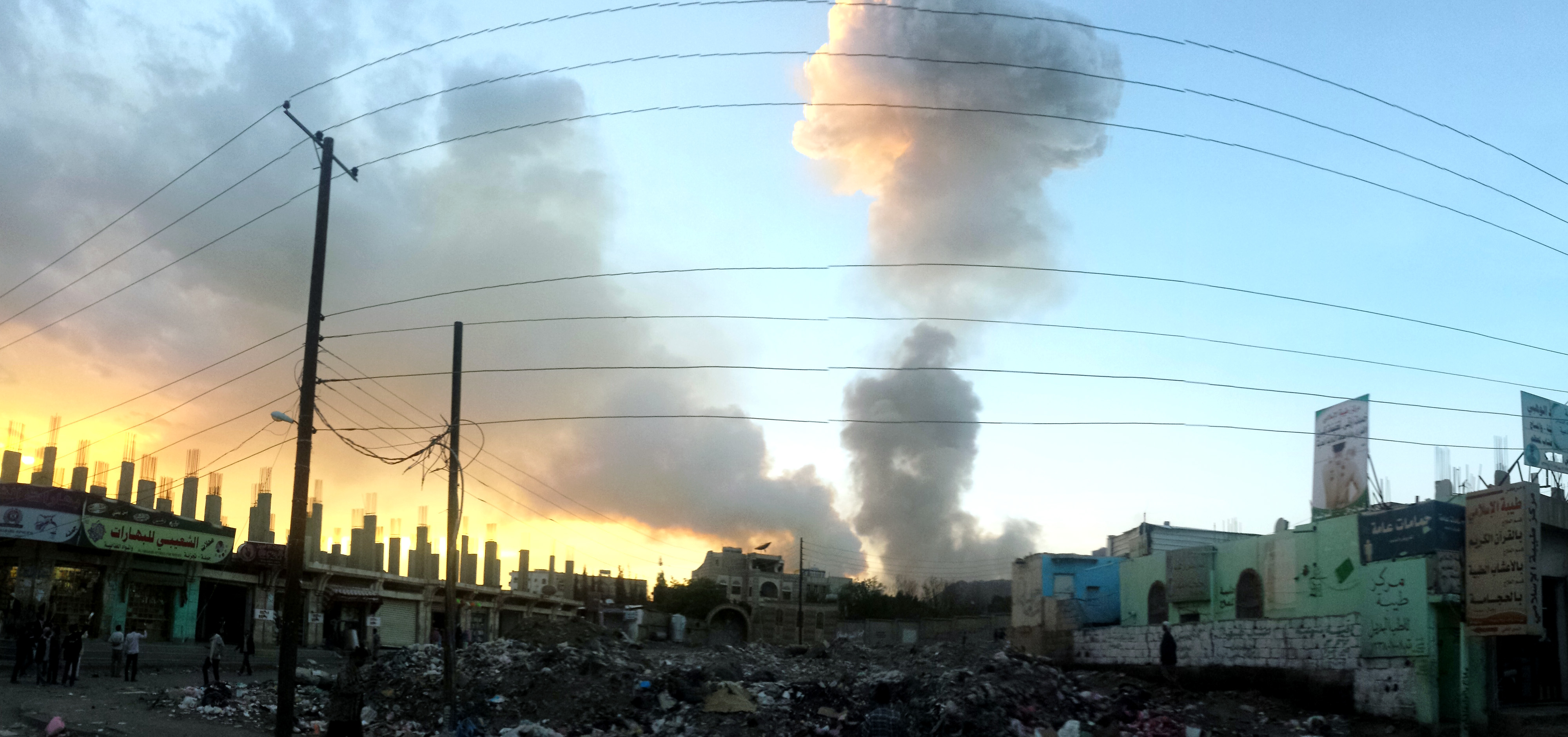Air strike in Sanaa, Yemen, 5 November 2015
Copyright© ibrahem Qasim via flickr, CC BY-SA 2.0
Political situation Disintegration of a country – rival power groups
The current (2023) Fragile States Index (External link) published by the non-governmental organisation Fund for Peace ranks Yemen second in the list of the world's most fragile states. Rebels from the Houthi movement have been fighting against the country's government since 2004. Large parts of the north and west of the country, including the capital, Sana'a, are under their control. Other players in the civil war are regional branches of the Al-Qaeda and “Islamic State” terrorist networks. In 2015, a military coalition led by Saudi Arabia intervened in the conflict. The coalition supports the official government.
In April 2022, President Abdrabuh Mansour Hadi stepped down. Yemen has since officially been governed by a Presidential Leadership Council, which has eight members. Some southern regions are controlled by the Southern Transitional Council (STC), which advocates independence for the country's southern part.
Diplomatic efforts
In December 2023, Hans Grundberg, UN Special Envoy for Yemen, announced that tensions between the conflicting parties had eased and that the parties had agreed, in principle, that there should be a peace process. The purpose of his mediation efforts is to achieve a nationwide ceasefire, improved living conditions, and the start of a comprehensive political process led by the UN in order to achieve peace in the country. The UN roadmap envisages, among other things, the resumption of oil exports, the opening of important roads, and further easing restrictions on Sana'a Airport and the Hudaydah port.
Following the attack of the terrorist organisation Hamas on Israel on 7 October 2023 and the subsequent Israeli military operations in the Gaza Strip, however, the Houthi rebels have started attacking international commercial vessels in the Red Sea with missiles and drones. They have stated that they want to continue this until Israel stops its air strikes on the Palestinian territories. In response, the United States, with support from other countries, have created a military alliance to protect commercial shipping. They have also attacked Houthi military installations in Yemen. Germany is part of an EU mission for the protection of commercial ships in the Red Sea. The United States has designated the rebel movement as a terrorist organisation.
These developments have brought the peace efforts to a standstill for the time being. At present, it is unclear how the situation for Yemen will evolve.
Human rights
Experts consider the human rights situation in Yemen to be disastrous. Especially since the beginning of the intervention of the military coalition in 2015, serious human rights violations have increased significantly.
A report published by the UN Office of the High Commissioner for Human Rights (External link) in September 2020 accuses both sides of actions that may amount to war crimes, including the killing of civilians, torture, rape, and the recruitment of child soldiers. There are massive restrictions on the freedom of speech, freedom of assembly and freedom of the press.
In March 2024, Human Rights Watch reported (External link) that women in Yemen were facing increasing discrimination. According to Human Rights Watch, the Yemeni government and the Houthis and the Southern Transitional Council all commit systematic violations of women's right to freedom of movement, thus restricting their access to education, employment and healthcare.
For instance, a directive issued by the Houthi authorities bans women from travelling without a male guardian. This massive restriction of women's right to freedom of movement is also making it more difficult to implement development cooperation projects in northern Yemen.
As at: 23/04/2024
